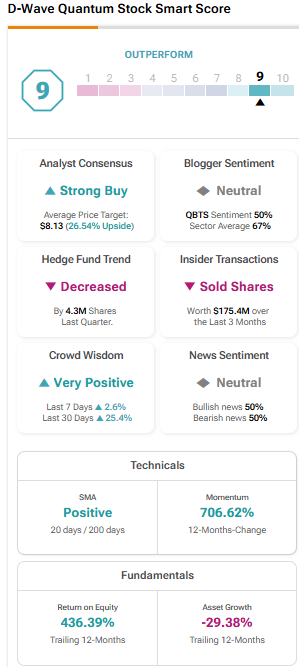Little Britain's Resurgence: Understanding Gen Z's Appreciation

Table of Contents
Nostalgia and the Power of Viral Trends
Nostalgia plays a significant role in Gen Z's rediscovery of older media. For a generation growing up in a digitally saturated world, revisiting the cultural artifacts of their parents' and grandparents' eras offers a unique form of connection and context. Little Britain's reappearance on streaming services like Netflix, Amazon Prime, and Hulu, combined with the power of viral trends on platforms such as TikTok and YouTube, has catapulted the show back into the spotlight.
- Viral Clips and Memes: Short, memorable clips from Little Britain, often featuring iconic characters like Daffyd Thomas or Emily Howard, have been circulating widely on social media. These clips are frequently recontextualized and reinterpreted through the lens of Gen Z humor, often showcasing ironic appreciation.
- Examples of Viral Content: The "Computer says no" sketch, the "Lou's got a car" scene, and many of the character-driven moments have become standalone memes, each resonating differently with Gen Z audiences.
- Ironic Appreciation: Gen Z’s engagement with Little Britain often involves a layer of ironic distance. They might find humor in the show's outdated stereotypes, acknowledging their problematic nature while simultaneously appreciating the comedic performances and satirical intent. This ironic appreciation fuels the viral spread and perpetuates the show's online presence.
Relatable Characters and Themes, Despite Controversy
Little Britain is not without its controversies. The show has been criticized extensively for its use of stereotypes and portrayal of certain characters, some of which are undeniably offensive. However, Gen Z's interpretation often differs from that of previous generations. Many viewers engage with the show's satirical intent, seeing its exaggeration and caricature as a form of social commentary, however flawed.
- Resonating Characters: Despite the controversy, characters like Daffyd Thomas (the only gay man in his village) resonate with Gen Z, sparking discussions about representation and the complexities of identity within a satirical context.
- Exaggeration and Caricature: The show’s reliance on heightened character traits and exaggerated situations is a key element of its comedy. Gen Z viewers might engage with this style critically, recognizing its limitations while still finding it humorous.
- Critical Engagement: A significant difference lies in Gen Z’s ability to engage critically with the show’s problematic aspects. Their awareness of societal biases and historical context allows for a more nuanced understanding and discussion of the show's limitations.
Accessibility and the Changing Media Landscape
The accessibility afforded by streaming services is a crucial factor in Little Britain's resurgence. Unlike previous generations, Gen Z has grown up with on-demand viewing as the norm. Streaming platforms have democratized access to a wide range of content, including older shows that might have been previously overlooked.
- Viewing Habits: Gen Z's consumption patterns differ drastically from those of previous generations. They are more accustomed to short-form video content and easily navigate diverse platforms.
- Algorithmic Recommendations: Streaming services’ algorithmic recommendations play a significant role in introducing Gen Z to Little Britain. Personalized suggestions often lead viewers to discover content outside their usual viewing preferences.
- Shaping Cultural Trends: Streaming platforms are powerful agents in shaping cultural trends. The ease of access and curated content significantly influence what gains popularity amongst different demographics, including Gen Z.
The Evolution of Humor and Social Awareness
Humor and comedic styles have undeniably evolved. Gen Z's perspective is often more nuanced and socially conscious than that of previous generations. This explains their ability to both enjoy and critically analyze content that might have been readily accepted or dismissed by previous audiences.
- Contemporary Comedy Comparisons: Comparing Little Britain's humor to contemporary comedy shows highlights the shift in comedic sensibilities. Modern comedy often prioritizes inclusivity and avoids relying on potentially harmful stereotypes.
- Changing Social Attitudes: Societal attitudes towards humor and representation have changed dramatically. What might have been considered acceptable in the early 2000s is now viewed through a different lens.
- Ethical Considerations: The ethical considerations involved in consuming potentially offensive content are actively discussed by Gen Z, who demonstrate a capacity for self-reflection and critical analysis.
Little Britain's Enduring Appeal and Future Discussions
Gen Z's appreciation for Little Britain is a complex phenomenon. It stems from a potent blend of nostalgia, the relatability (despite controversy) of its characters, increased accessibility through streaming platforms, and an evolved understanding of humor and social commentary. The show's legacy remains undeniably complex, prompting important conversations about satire, representation, and the evolving nature of comedy.
The resurgence of Little Britain highlights the ever-shifting landscape of humor and cultural consumption. It’s crucial to engage with the show’s content critically, acknowledging its problematic elements while simultaneously recognizing the comedic talent and cultural impact it had. Watch (or rewatch) Little Britain, participate in respectful discussions about its comedic style and problematic aspects, and share your perspectives using #LittleBritainGenZ. Let's continue this important conversation about Little Britain's lasting legacy and its place in Gen Z's cultural landscape.

Featured Posts
-
 Hmrc Letters To High Earners Thousands Affected By 23 000 Threshold
May 20, 2025
Hmrc Letters To High Earners Thousands Affected By 23 000 Threshold
May 20, 2025 -
 Find The Answers Nyt Mini Crossword March 16 2025
May 20, 2025
Find The Answers Nyt Mini Crossword March 16 2025
May 20, 2025 -
 E Bay Vinted And Depop Sellers New Hmrc Tax Letters Explained
May 20, 2025
E Bay Vinted And Depop Sellers New Hmrc Tax Letters Explained
May 20, 2025 -
 D Wave Quantum Qbts Stock Price Movement On Monday A Comprehensive Overview
May 20, 2025
D Wave Quantum Qbts Stock Price Movement On Monday A Comprehensive Overview
May 20, 2025 -
 Nyt Mini Crossword Solutions For March 16 2025
May 20, 2025
Nyt Mini Crossword Solutions For March 16 2025
May 20, 2025
Latest Posts
-
 5 Circuits Velo Pour Decouvrir La Loire Nantes Et L Estuaire
May 21, 2025
5 Circuits Velo Pour Decouvrir La Loire Nantes Et L Estuaire
May 21, 2025 -
 Le Port De La Croix Catholique Au College De Clisson Un Enjeu Educatif
May 21, 2025
Le Port De La Croix Catholique Au College De Clisson Un Enjeu Educatif
May 21, 2025 -
 Testez Vos Connaissances Sur La Loire Atlantique Quiz Histoire Gastronomie And Culture
May 21, 2025
Testez Vos Connaissances Sur La Loire Atlantique Quiz Histoire Gastronomie And Culture
May 21, 2025 -
 Parcourir La Loire A Velo Nantes Vignobles Et Estuaire
May 21, 2025
Parcourir La Loire A Velo Nantes Vignobles Et Estuaire
May 21, 2025 -
 Clisson Debat Sur Le Port De Symboles Religieux Au College
May 21, 2025
Clisson Debat Sur Le Port De Symboles Religieux Au College
May 21, 2025
